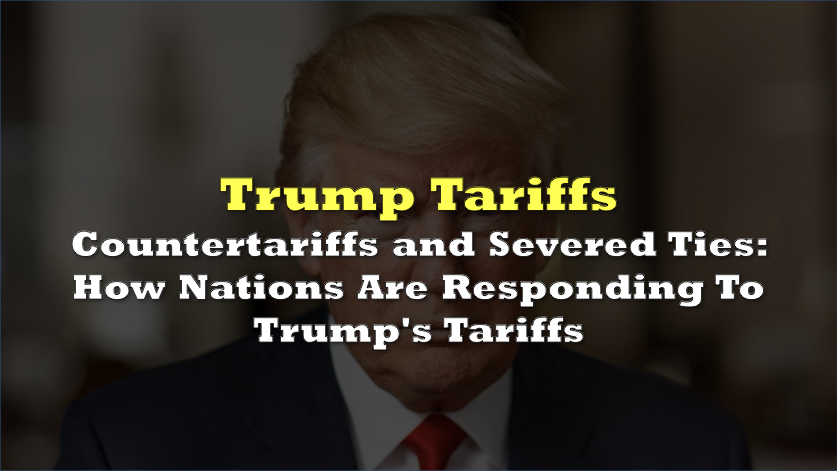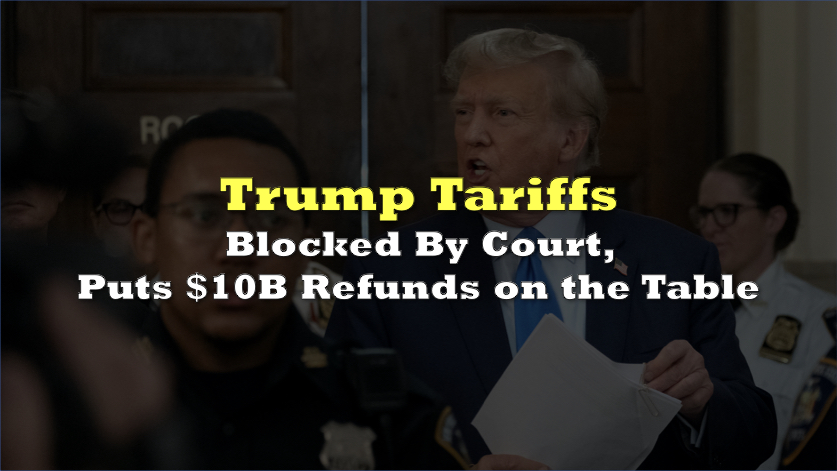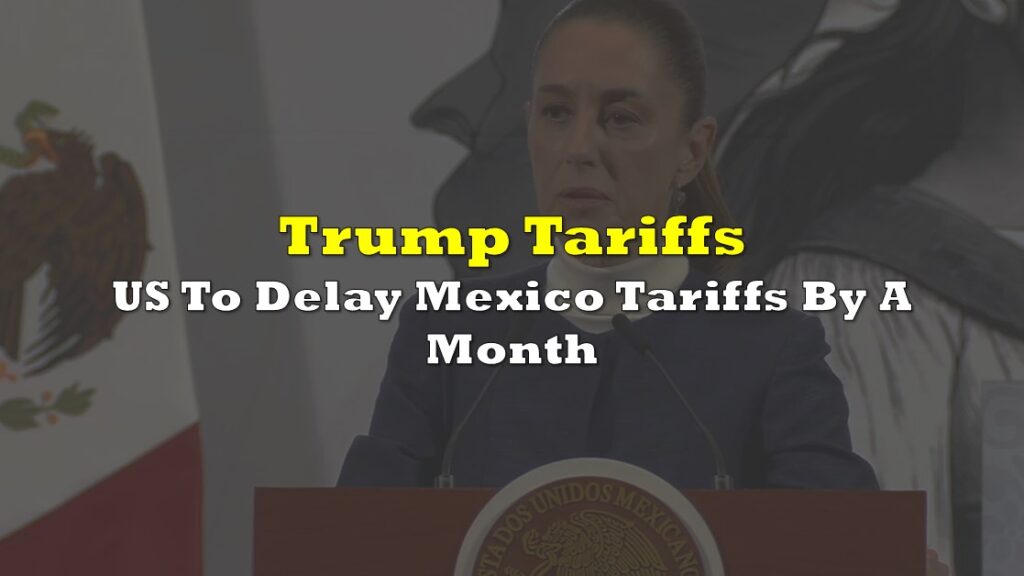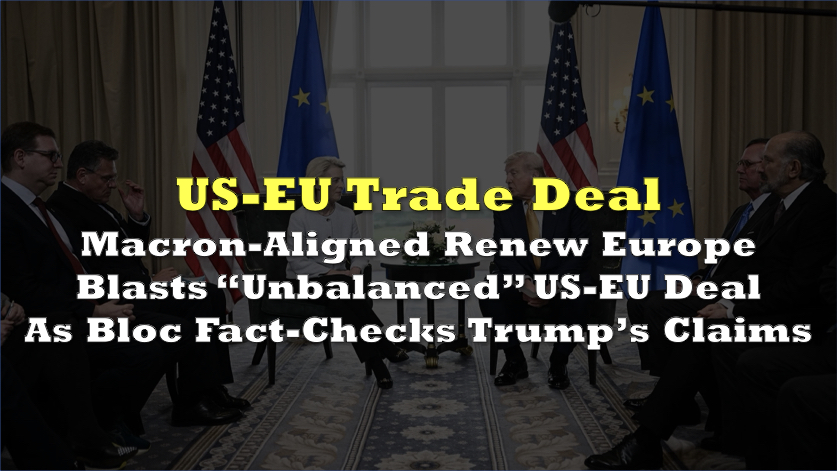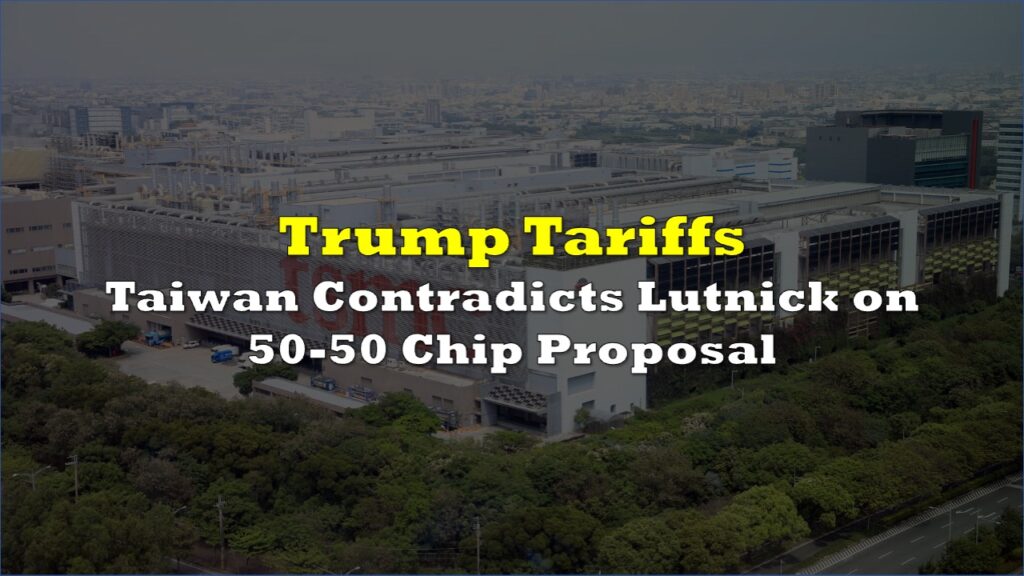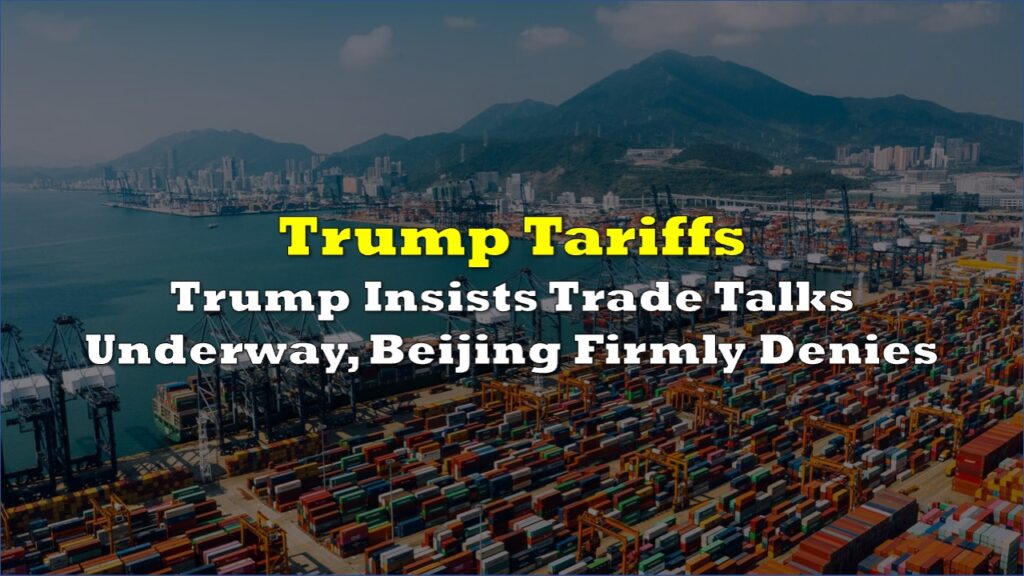The escalating series of trade tariffs by President Donald Trump has drawn swift and forceful responses from governments worldwide.
In Canada, Prime Minister Mark Carney declared that the “era of integration with the US economy is over.” Canadian officials confirmed plans to match U.S. tariffs on passenger vehicles and institute a 25% tariff on automobiles that fail to comply with the USMCA.
CANADA PM CARNEY: ERA OF INTEGRATION WITH U.S. ECONOMY IS 'OVER'
— *Walter Bloomberg (@DeItaone) April 3, 2025
*CANADA TO MATCH US TARIFFS ON PASSENGER VEHICLES
— zerohedge (@zerohedge) April 3, 2025
*CANADA TO ADD 25% TARIFF ON AUTOS THAT DON'T COMPLY WITH USMCA
More bad news for China then
Across the pond, French President Emmanuel Macron insisted that “if Europeans work together in their response to US tariffs, we will succeed in dismantling US tariffs.” Pointing to what he called a harsh lesson from previous disputes, Macron vowed that the EU’s reaction to this latest wave of levies “will be more massive than [the] previous response.”
MACRON: IF EUROPEANS WORK TOGETHER IN THEIR RESPONSE TO US TARIFFS, WE WILL SUCCEED IN DISMANTLING US TARIFFS
— *Walter Bloomberg (@DeItaone) April 3, 2025
MACRON: RESPONSE TO WEDNESDAY'S ANNOUNCEMENT OF US TARIFFS WILL BE MORE MASSIVE THAN PREVIOUS RESPONSE
— *Walter Bloomberg (@DeItaone) April 3, 2025
He went so far as to encourage European companies to pause new investments in the US until the tariff situation becomes clearer, reflecting a readiness to use both political and economic pressure to influence policy in Washington.
MACRON URGES COMPANIES TO PAUSE US INVESTMENTS
— *Walter Bloomberg (@DeItaone) April 3, 2025
China, meanwhile, is gearing up for fresh negotiations, with Chinese advisors suggesting that talks may begin soon thanks to Trump’s well-known penchant for dealmaking. However, they caution that a hasty resolution is unlikely, especially since some in Beijing view the US position as bound to weaken if American markets experience further strain.
While trade watchers see potential openings for compromise, Beijing remains firm in its stance that “China firmly opposes tariffs and will respond.” Commentary which preceded the implementation of a 34% tariff on American goods.
⚠️BREAKING:
— Investing.com (@Investingcom) April 4, 2025
*CHINA ANNOUNCES EXTRA 34% TARIFFS ON U.S. GOODS FROM APRIL 10
🇨🇳🇺🇸 pic.twitter.com/BH1hEJbiHY
CHINA-US NEGOTIATIONS LIKELY SOON- CHINESE ADVISORS
— *Walter Bloomberg (@DeItaone) April 3, 2025
Trade negotiations between China and the U.S. are likely to start soon given President Donald Trump's penchant for dealmaking, but a quick settlement looks difficult, with China calculating that the U.S. position will be…
In Switzerland, officials described Washington’s justifications for the tariffs as “incomprehensible,” echoing frustration that has emerged across Asia, Europe, and the Americas. The Swiss sentiment reflects a broader global concern that new import levies—especially on steel, aluminum, and automobiles—could derail established supply chains and disrupt longstanding international trade pacts.
SWISS GOVT SAYS FINDS US GOVERNMENT'S CALCULATIONS ON TRADE TARIFFS INCOMPREHENSIBLE
— *Walter Bloomberg (@DeItaone) April 3, 2025
From Germany’s call for the EU to “exert pressure on Trump,” to Japan labeling the tariffs “regrettable” while seeking exemptions, governments worldwide are taking a more confrontational posture. South Korea announced it would offer emergency support to industries hit hard by new trade barriers, and Brazil is assessing whether to challenge Washington before the World Trade Organization.
Israel has declared plans to combat a 17% tariff on its goods, while Mexico, though rejecting direct tit-for-tat measures, is preparing a broader strategic response. Australia remains open to negotiation but is determined to avoid escalating consumer prices through retaliatory taxes.
GOVERNMENTS WORLDWIDE VOWED COUNTERMEASURES AFTER TRUMP IMPOSED NEW TARIFFS:
— *Walter Bloomberg (@DeItaone) April 3, 2025
🔸 EU – Preparing retaliatory measures if talks fail.
🔸 China – Firmly opposes tariffs, will respond.
🔸 Japan – Calls tariffs "regrettable," seeks exemption, promises swift action.
🔸 Germany – Calls…
In addition, Canada’s decision to impose its own tariffs on non-USMCA-compliant vehicles underscores how quickly the rules of trade can shift. For companies and investors navigating these uncertainties, the challenge lies not only in ongoing talks, but also in the speed with which governments are deploying countermeasures.
Information for this story was found via the sources and companies mentioned. The author has no securities or affiliations related to the organizations discussed. Not a recommendation to buy or sell. Always do additional research and consult a professional before purchasing a security. The author holds no licenses.

